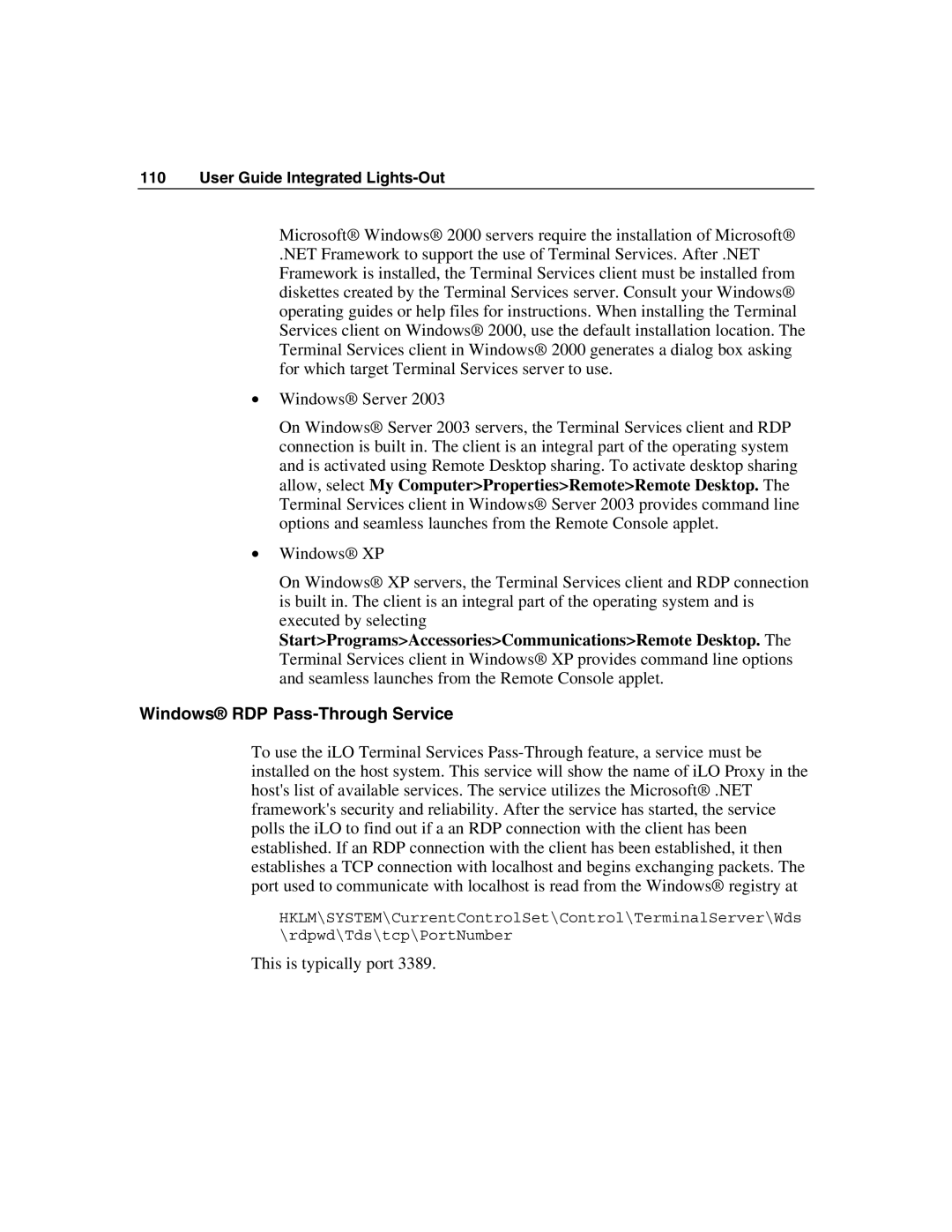110 User Guide Integrated Lights-Out
Microsoft® Windows® 2000 servers require the installation of Microsoft®
.NET Framework to support the use of Terminal Services. After .NET Framework is installed, the Terminal Services client must be installed from diskettes created by the Terminal Services server. Consult your Windows® operating guides or help files for instructions. When installing the Terminal Services client on Windows® 2000, use the default installation location. The Terminal Services client in Windows® 2000 generates a dialog box asking for which target Terminal Services server to use.
•Windows® Server 2003
On Windows® Server 2003 servers, the Terminal Services client and RDP connection is built in. The client is an integral part of the operating system and is activated using Remote Desktop sharing. To activate desktop sharing allow, select My Computer>Properties>Remote>Remote Desktop. The Terminal Services client in Windows® Server 2003 provides command line options and seamless launches from the Remote Console applet.
•Windows® XP
On Windows® XP servers, the Terminal Services client and RDP connection is built in. The client is an integral part of the operating system and is executed by selecting Start>Programs>Accessories>Communications>Remote Desktop. The Terminal Services client in Windows® XP provides command line options and seamless launches from the Remote Console applet.
Windows® RDP Pass-Through Service
To use the iLO Terminal Services
HKLM\SYSTEM\CurrentControlSet\Control\TerminalServer\Wds
\rdpwd\Tds\tcp\PortNumber
This is typically port 3389.
